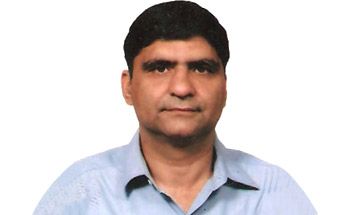
The fledgling and nascent private FM radio industry owes its existence to the initiative of the Information and Broadcasting Ministry to create a unique example of encouraging private enterprise to build an industry which internationally has proven to be a major source of news and entertainment to the masses, besides providing tremendous opportunities for employment generation.
The private FM Radio industry has worked closely with the Government of India to create a massive infrastructure which today reaches out to 150 million people across 91 locations. It currently employs around 10,000 people (direct employment) and many times over in indirect employment. The Private FM radio industry contributes over Rs one billion per annum to the Government through the license fee payments / rentals alone. Conservative estimates of contribution to the exchequer through personal taxation and indirect taxation would be at least two to three times this amount.
To achieve these results within a short span of five to six years, the industry has invested heavily by way of license bids or One time Entry Fee (OTEF) of Rs.1180 Crores and further capital expenditure of around Rs. 750 crores to set up new radio stations, besides funding gestational losses which are only to be expected while building an industry with mass appeal. Several companies have raised substantial debt to fund part of this heavy investment The Companies in this fledgling industry are currently struggling due to various recent factors that have structurally impacted the economy in recent months and have had a devastating impact on the FM Radio industry in particular:
Revenue Growth Slow Down:
a) During the current economic downturn, advertisement spending by Companies is being severely curtailed. During the past few months, private FM Radio companies have witnessed steep revenue decline.
b) In addition to reducing advertisement spends, advertisers and their agencies, impacted by slowing revenues and liquidity problems, are also deferring and defaulting on their payment commitments to the FM radio companies. This has resulted in severe and debilitating cash flow crunch in most private FM radio companies with outstanding payments deteriorating to 200+ days.
High Music Royalty continues to be the major impediment to short term survival and long term potential of private FM industry. Combined with the stand of the Government not to allow News /Current Affairs which is limiting programming options, there is no way out till a reasonable solution is implemented. The limit of 10 year period of license has also proved to be commercially unviable, with most stations unlikely to cumulatively break over a 10 year term
The specific issues we would request to be addressed by Finance Minister in the budget are :
1. Tax holiday for FM for 3 years
2. Concessional rate of interest on loans / priority sector lending.
3. Reduction in customs duty on transmitters / antenna / combiners and studio equipment
The specific issues we would request the Minister (I&B) to address through policy are ( these are in addition to already agreed policy initiatives as per Ministry comments on TRAI recommendations:
a. Increase in license period from 10 to 15 years.
b. Moratorium on payment on licensee fees for 2 years . Alternatively, industry will also welcome a deferment of 2 year license fees.
c. Inclusion of News, subject to a mutually agreed code and monitoring mechanism Limiting news to just AIR feeds is regressive.
The specific issues we would request Minister (HRD) to address are:
I. An early, realistic and fair music royalty decision by the Copyright Board.
By Uday Chawla is the Association of Radio Operators' of India secretary general